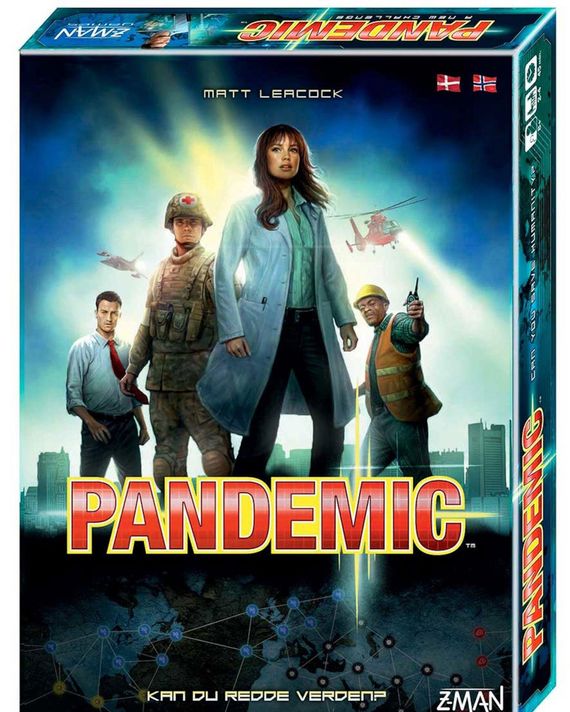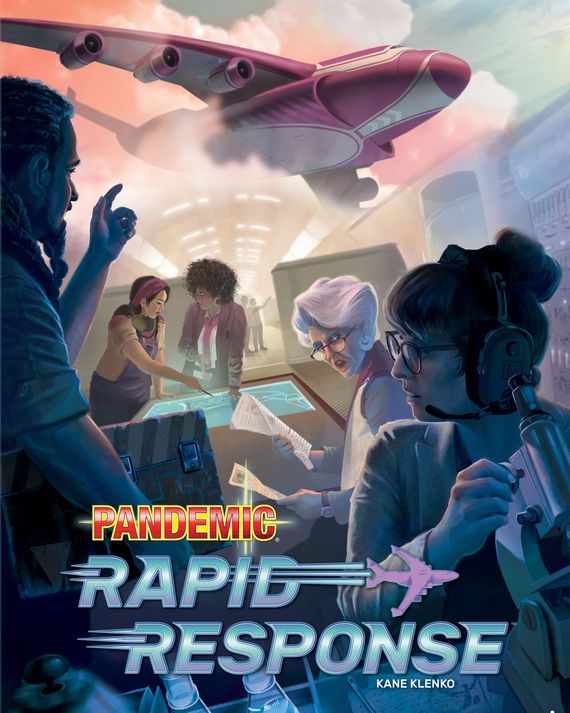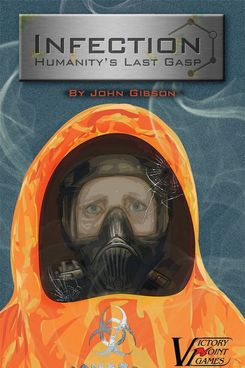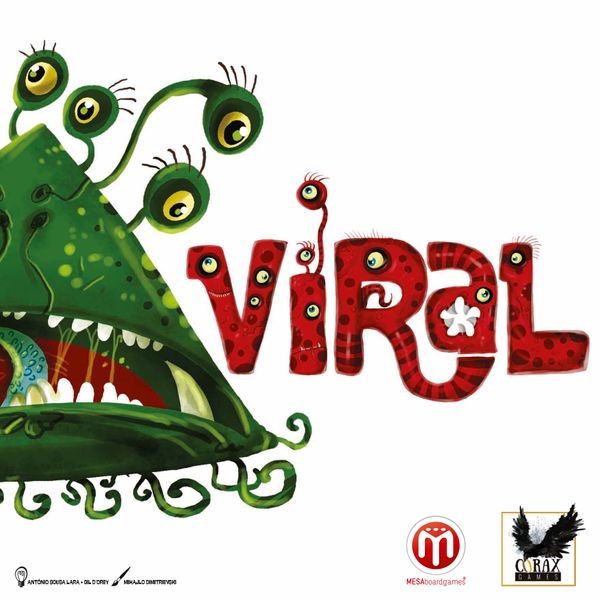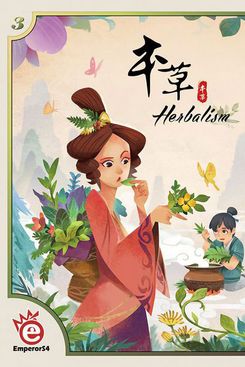
While we’re all stuck at home now, board games are having a moment. And as it happens, there’s a curious intersection of tabletop games and our current experience, as the spread of diseases has long been fodder for game designers, going back to John Horton Conway’s famous mathematical simulation called the Game of Life, created in 1970. (Conway, sadly, passed away last weekend due to COVID-19.) With so many options, we’ve put together a helpful guide to the world of pandemic-themed board games.
The Pandemic slate
The towering champion of tabletop games that use this theme is simply called Pandemic, the best and most popular cooperative board game ever made, spawning numerous expansions, spinoffs, and a still-going series of Pandemic Legacy games. In Pandemic, two to four players take on specific roles and try to fight four diseases that are spreading from four different parts of the world. Players move their tokens across the map, treating diseases by removing cubes from various cities, and collecting city cards in each of the four disease colors to try to cure them by having one player turn in five cards of the same color.
Over the course of the game, however, new outbreaks will spring up, causing the diseases to spread farther and faster, and there are more ways to lose the game — run out of disease cubes to place, suffer eight outbreaks, exhaust the city card deck — than there are to win, which you can only do by curing all four diseases.
Pandemic is now the head of a whole family of games, and in some sense has been surpassed by one of its children, Pandemic Legacy, which has two “seasons” so far. Legacy games change each time you play them, where you may alter the board with stickers or destroy cards or other components. Each season of Pandemic Legacy covers 12 play sessions, each representing a month of a year. You have to win a month to advance to the next one, and if you win, the game recalibrates to make next month a little harder. It’s the No. 2 board game on BoardGameGeek’s rankings, behind only the role-playing game Gloomhaven.
The original Pandemic has multiple expansions, including On the Brink, which introduces new roles and special events, but also includes the Bioterrorist role, where one player tries to spread a disease and all others try to stop them; and the Virulent Strain, which becomes much harder to cure than the other three diseases once it emerges. Pandemic: In the Lab adds a second board where players have to move pawns to actively cure the four diseases, while Pandemic: State of Emergency includes three specific scenarios that include the Hinterlands Challenge, where diseases spread from animals to humans, just as COVID-19 did.
Other spinoffs include Pandemic: The Cure, which adds a dice-rolling component to the base game and Pandemic: Rapid Response, which adds dice-rolling and a timed component, so the entire game ends in about 20 minutes, and you’re racing against the clock. There’s also Pandemic: Contagion, where players play as the diseases, not as humanity, which I’ve declined to play as that’s just too macabre for me.
The core mechanic of Pandemic now appears in two games under the same name that don’t have a disease theme, Pandemic: Rising Tide (where you’re fighting the sea in the Netherlands) and Pandemic: Fall of Rome. It’s also shared by a family of cooperative games of varying levels of difficulty, from the fabulous kids’ game Mole Rats in Space to the Forbidden games (Island, Desert, and Sky).
I spoke to designer Matt Leacock — whose most recent game, Era: Medieval Age, is an update of his classic Roll Through the Ages — about how Pandemic first came about, and why this theme is often fodder for board-game designers. The first answer is simple: “SARS had been in the news around the time that I started on the game,” he says, referring to another novel coronavirus (SARS-CoV) that caused over 8,000 cases of the respiratory disease in 2002–03.
Diseases and pandemics make for an easy theme for board games, because “you can make crude models of them with some simple rules that result in interesting emergent behaviors,” Leacock says. “They basically want to replicate. That means the designer needs to fill in some blanks: How do they appear? What factors affect how quickly they spread? What can the players do to mitigate this? And so on.”
Leacock was careful to note, though, that he never intended for Pandemic to be a simulation, saying that “these (variables) have all been tuned to deliver the most engaging experience,” which is part of the genius of the game: It’s extraordinarily well-balanced, so that once you find your level, you can play it repeatedly and nearly always find it challenging.
Games That Aren’t Pandemic
Pandemic is the king of this particular slice of board-game culture, but of course, there are many other disease- or pandemic-themed games you might want to check out. Here are some of the best.
Plague Inc. puts you on the opposite side of the battle — you and up to four opponents play as diseases fighting to infect the world first. A tabletop version of a popular app that first appeared online in 2012, Plague Inc. is a game of hand management and area control, as you spread outward from your own patient zero and try to ultimately “kill” countries using — I’m not making this up — “death dice.” As with Pandemic: Contagion, I have always found this game a little distasteful because of its theme, even before the COVID-19 pandemic, but it has its adherents.
Infection: Humanity’s Last Gasp is a solitaire game that feels awfully on the nose right now. A patient steps off a plane at JFK and collapses due to an infection with a new, rapidly mutating virus for which there is no treatment. You command a group of scientists racing to develop a vaccine before the disease’s spread reaches a preset threshold. It’s currently out of print, although there are many used copies floating around online.
Viral is a bit less morbid, as it pits players against each other as individual viruses invading just one host body, rather than trying to wipe out our entire species. Players try to control zones of the body, and try to cause organ failures for more points, although doing so activates the host’s immune system. The art is silly by design, so it’s more suitable for family play than any of the other games I’ve seen in this vein.
Herbalism is an import from Japanese publisher Emperor S4, whose games have some of the best artwork in the field and often come in small boxes (like Hanamikoji and Shadows in Kyoto, two asymmetrical two-player games). A fast-moving game for three or four players, Herbalism pits players as “pharmacists” trying to guess the two herbs they’ll need to cure a disease causing a new pandemic, doing so by exchanging cards with the other players and placing tokens to show their predictions. While the conceit is largely nonsense (herbalism is no substitute for real medical science), the game has a lot going for it, including some truly fantastic art.
Every editorial product is independently selected. If you buy something through our links, New York may earn an affiliate commission.


